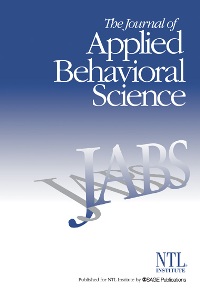Rethinking the Meaning of Meetings

“The World Café is predicated on the importance of conversation, which has been described as a ‘declining art.'”
Editor’s note: We are pleased to welcome Jane Jorgenson and Frederick Steier, both of the University of South Florida, whose article “Frames, Framing, and Designed Conversational Processes: Lessons From the World Café” is forthcoming in the Journal of Applied Behavioral Science and now available in the journal’s OnlineFirst section.
 This paper grows out of our interest in Gregory Bateson’s ideas, particularly his concepts of framing and metacommunication, as they surface at the boundary between organizational theory and practice. We draw examples from two World Café conversations and analyze them through the lens of framing to better understand how these dialogic approaches such as the World Cafe create alternative spaces for questioning assumptions and for “serious play.”
This paper grows out of our interest in Gregory Bateson’s ideas, particularly his concepts of framing and metacommunication, as they surface at the boundary between organizational theory and practice. We draw examples from two World Café conversations and analyze them through the lens of framing to better understand how these dialogic approaches such as the World Cafe create alternative spaces for questioning assumptions and for “serious play.”
 An unexpected insight that emerged for us was the realization that the meaning of communicative contexts cannot be legislated by the meeting planners and facilitators. The frames that we, as practitioners, attempt to evoke in a large group dialogue are dynamic and precarious in the sense that participants may bring their own, very different understandings of the situation; sometimes participants challenge the premises of the meeting, thus, “breaking” or altering the frame of the encounter.
An unexpected insight that emerged for us was the realization that the meaning of communicative contexts cannot be legislated by the meeting planners and facilitators. The frames that we, as practitioners, attempt to evoke in a large group dialogue are dynamic and precarious in the sense that participants may bring their own, very different understandings of the situation; sometimes participants challenge the premises of the meeting, thus, “breaking” or altering the frame of the encounter.
We suggest that Bateson’s ideas of framing offer fresh possibilities for enhancing the facilitator’s awareness of the context in which he or she is a participating member. Bateson’s perspective affords an appreciation of the inherent ambiguity and indeterminacy of frames, qualities that can be valuable resources for enhancing a system’s renewal and growth.
Read the paper, “Frames, Framing, and Designed Conversational Processes: Lessons From the World Café,” online in the Journal of Applied Behavioral Science.
 Jane Jorgenson is a faculty member in the Department of Communication at the University of South Florida. Her research and teaching interests include organizational communication, the meaning of work, and work-family conflicts. Her current research explores the role of framing in the production of organizational realities. She received her PhD from the Annenberg School of Communication at the University of Pennsylvania.
Jane Jorgenson is a faculty member in the Department of Communication at the University of South Florida. Her research and teaching interests include organizational communication, the meaning of work, and work-family conflicts. Her current research explores the role of framing in the production of organizational realities. She received her PhD from the Annenberg School of Communication at the University of Pennsylvania.
 Frederick Steier is on the faculty of the Department of Communication at the University of South Florida, where he previously served as Director of Interdisciplinary Studies Programs. He is the editor of the volume, Gregory Bateson: Essays for an ecology of ideas (Imprint Academic, 2005) and is currently enjoying being a scientist-in-residence at the Museum of Science and Industry in Tampa, Florida, USA, where he is involved in participatory action research studies of organizing for collaborative learning and play. He received his doctorate from the Wharton School of the University of Pennsylvania in Social Systems Sciences.
Frederick Steier is on the faculty of the Department of Communication at the University of South Florida, where he previously served as Director of Interdisciplinary Studies Programs. He is the editor of the volume, Gregory Bateson: Essays for an ecology of ideas (Imprint Academic, 2005) and is currently enjoying being a scientist-in-residence at the Museum of Science and Industry in Tampa, Florida, USA, where he is involved in participatory action research studies of organizing for collaborative learning and play. He received his doctorate from the Wharton School of the University of Pennsylvania in Social Systems Sciences.





















































































